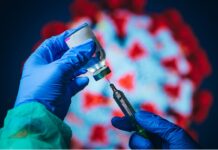 SACRAMENTO, CA: Cancer, the big C, is not just a single disease; it is a complex beast that, according to data from the National Cancer Institute, will be diagnosed in 1 in 2 people during their lifetime.
SACRAMENTO, CA: Cancer, the big C, is not just a single disease; it is a complex beast that, according to data from the National Cancer Institute, will be diagnosed in 1 in 2 people during their lifetime.
Z., says his recent contributions to the field of medical imaging will make it possible for any physician to detect cancer and brain diseases more quickly and efficiently in patients who may not know they have the deadly ailments.
Research being performed by scientists like Singh is giving hope to those who suffer from Parkinson’s disease, Alzheimer’s disease and other fatal illnesses that they will have access to affordable health care that could extend their lives for many years into the future.
Cancer affects different people differently. For all cancers combined, the death rate is 25 percent higher for African Americans/blacks than for whites.
White women have the highest incidence rate for breast cancer, although African American/Black women are most likely to die from the disease.
Hispanic/Latino women have the highest cervical cancer incidence rate.
Asian Americans and Pacific Islanders have the highest incidence rates for both liver and stomach cancer and are twice as likely to die from these cancers as whites.
American Indians and Alaska Natives have higher incidence and death rates for kidney cancer than other racial/ethnic groups.
Dr Singh’s research encourages collaboration among faculty with a broad range of expertise – from molecular and cellular biology to genetics and clinical research. This unique structure fosters laboratory-based, computational and clinical research that yields discoveries which can be rapidly translated into treatments for cancer patients.
“As a practicing researcher with an outstanding track record in molecular biology and genetics, Dr Singh is at the forefront of translating research advances into advanced molecular therapeutics – expertise that will be instrumental in catalyzing scientists effort to build strength in clinical molecular diagnostics and precision oncology,” said Prof Hamid Arabnia, a professor of computer science at the University of Georgia.
“I am confident that Dr Singh research will continue to help other scientists to apply the strategies he has developed and used so successfully for brain tumors to many other types of solid-tumor cancers” he said.
With advances in genomics increasingly playing an important role in solid-tumor oncology, Singh’s expertise strengthens the big data science in translational, solid-tumor research.
Employing a sophisticated system of mathematical equations known as a Big data model, researchers found that metastatic lung cancer does not progress in a single direction from primary tumor site to distant locations, which has been the traditional medical view. Instead, they found that cancer cell movement around the body likely occurs in more than one direction at a time.
Researchers also learned that the first site to which the cells spread plays a key role in the progression of the disease. The study showed that some parts of the body serve as “sponges” that are relatively unlikely to further spread lung cancer cells. Other areas were identified as “spreaders” for lung cancer cells.
As part of research, Researchers are able to able to apply Dr Singh’s analytics technology to develop algorithms for big data containing genomic datasets to uncover critical factors that speed up disease progression in Cancer.
Insights gained from the research are shared with hundreds of doctors within US and internationally to better tailor the personalized treatments to slow cancer growth, physical disability, cognitive and impairments.
Using Dr Singh’s analytics technology, Researchers from University of UC Davis, Sutter Health, and Kaiser Permanente can for the first time explore clinical and patient specific data to find trends among cancer patients by looking at factors such as gender, geography, ethnicity, diet, lifestyle and exercise.
The Big Data includes lab results, patient genomic datasets, medical records, chemotherapy results, medical imaging ( CT/MRI/SPECT) and patient surveys and questionnaire arrives in various formats and sizes required researchers to spend days making it manageable before they can analyze it.
India Post News Service






